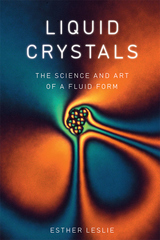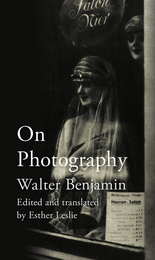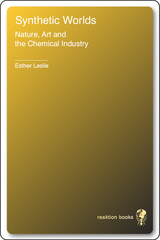6 books about Leslie, Esther

After Capitalism
Horizons of Finance, Culture, and Citizenship
Ferguson, Kennan
Rutgers University Press, 2016
From Thomas Piketty to David Harvey, scholars are increasingly questioning whether we are entering into a post-capitalist era. If so, does this new epoch signal the failure of capitalism and emergence of alternative systems? Or does it mark the ultimate triumph of capitalism as it evolves into an unstoppable entity that takes new forms as it engulfs its opposition?
After Capitalism brings together leading scholars from across the academy to offer competing perspectives on capitalism’s past incarnations, present conditions, and possible futures. Some contributors reassess classic theorizations of capitalism in light of recent trends, including real estate bubbles, debt relief protests, and the rise of a global creditocracy. Others examine Marx’s writings, unemployment, hoarding, “capitalist realism,” and coyote (trickster) capitalism, among many other topics. Media and design trends locate the key ideologies of the current economic moment, with authors considering everything from the austerity aesthetics of reality TV to the seductive smoothness of liquid crystal.
Even as it draws momentous conclusions about global economic phenomena, After Capitalism also pays close attention to locales as varied as Cuba, India, and Latvia, examining the very different ways that economic conditions have affected the relationship between the state and its citizens. Collectively, these essays raise provocative questions about how we should imagine capitalism in the twenty-first century. Will capitalism, like all economic systems, come to an end, or does there exist in history or elsewhere a hidden world that is already post-capitalist, offering alternative possibilities for thought and action?
[more]

Liquid Crystals
The Science and Art of a Fluid Form
Esther Leslie
Reaktion Books, 2016
While it is responsible for today’s abundance of flat screens—on televisions, computers, and mobile devices—most of us have only heard of it in the ubiquitous acronym, LCD, with little thought as to exactly what it is: liquid crystal. In this book, Esther Leslie enlightens us, offering an accessible and fascinating look at—not a substance, not a technology—but a wholly different phase of matter.
As she explains, liquid crystal is a curious material phase that organizes a substance’s molecules in a crystalline form yet allows them to move fluidly like water. Observed since the nineteenth century, this phase has been a deep curiosity to science and, in more recent times, the key to a new era of media technology. In between that time, as Leslie shows, it has figured in cultural forms from Romantic landscape painting to snow globes, from mountaineering to eco-disasters, and from touchscreen devices to DNA. Expertly written but accessible, Liquid Crystals recounts the unheralded but hugely significant emergence of this unique form of matter.
As she explains, liquid crystal is a curious material phase that organizes a substance’s molecules in a crystalline form yet allows them to move fluidly like water. Observed since the nineteenth century, this phase has been a deep curiosity to science and, in more recent times, the key to a new era of media technology. In between that time, as Leslie shows, it has figured in cultural forms from Romantic landscape painting to snow globes, from mountaineering to eco-disasters, and from touchscreen devices to DNA. Expertly written but accessible, Liquid Crystals recounts the unheralded but hugely significant emergence of this unique form of matter.
[more]

On Photography
Walter Benjamin
Reaktion Books, 2015
Walter Benjamin’s 1931 essay “A Short History of Photography” is a landmark in the understanding and criticism of the medium, offering surprising new takes on such photographic pioneers as David Octavius Hill and Nicéphore Niépce and their aesthetic and technical achievements.
On Photography presents a new translation of that essay along with a number of other writings by Benjamin, some of them presented in English for the first time. Translator and editor Esther Leslie sets Benjamin’s work in context with prefaces to each piece and contributes a substantial introduction that considers Benjamin’s engagement with photography in all its forms, including early commercial studio photography, the uses of photography in science, and much more.
On Photography presents a new translation of that essay along with a number of other writings by Benjamin, some of them presented in English for the first time. Translator and editor Esther Leslie sets Benjamin’s work in context with prefaces to each piece and contributes a substantial introduction that considers Benjamin’s engagement with photography in all its forms, including early commercial studio photography, the uses of photography in science, and much more.
[more]

Synthetic Worlds
Nature, Art and the Chemical Industry
Esther Leslie
Reaktion Books, 2005
This revealing study considers the remarkable alliance between chemistry and art from the late eighteenth century to the period immediately following the Second World War. Synthetic Worlds offers fascinating new insights into the place of the material object and the significance of the natural, the organic, and the inorganic in Western aesthetics.
Esther Leslie considers how radical innovations in chemistry confounded earlier alchemical and Romantic philosophies of science and nature while profoundly influencing the theories that developed in their wake. She also explores how advances in chemical engineering provided visual artists with new colors, surfaces, coatings, and textures, thus dramatically recasting the way painters approached their work. Ranging from Goethe to Hegel, Blake to the Bauhaus, Synthetic Worlds ultimately considers the astonishing affinities between chemistry and aesthetics more generally. As in science, progress in the arts is always assured, because the impulse to discover is as immutable and timeless as the drive to create.
Esther Leslie considers how radical innovations in chemistry confounded earlier alchemical and Romantic philosophies of science and nature while profoundly influencing the theories that developed in their wake. She also explores how advances in chemical engineering provided visual artists with new colors, surfaces, coatings, and textures, thus dramatically recasting the way painters approached their work. Ranging from Goethe to Hegel, Blake to the Bauhaus, Synthetic Worlds ultimately considers the astonishing affinities between chemistry and aesthetics more generally. As in science, progress in the arts is always assured, because the impulse to discover is as immutable and timeless as the drive to create.
[more]

Walter Benjamin
Esther Leslie
Reaktion Books, 2007
Drawing upon a wealth of journal writings and personal correspondence, Esther Leslie presents a uniquely intimate portrait of one of the intellectual giants of the twentieth century, Walter Benjamin. She sets his life in the context of his middle-class upbringing; explores the social, political, and economic upheaval in Germany during and after World War I; and recounts Benjamin’s eccentric love of toys, trick-books, travel, and ships. From the Frankfurt School and his influential friendships with Theodore Adorno, Gershom Scholem, and Bertolt Brecht, to his travels across Europe, Walter Benjamin traces out the roots of Benjamin’s groundbreaking writings and their far-reaching impact in his own time. Leslie argues that Benjamin’s life challenges the stereotypical narrative of the tragic and lonely intellectual figure—instead positioning him as a man who relished the fierce combat of competing theories and ideas.
Closing with his death at the Spanish-French border in a desperate flight from the Nazis and Stalin, Walter Benjamin is a concise and concentrated account of a capacious intellect trapped by hostile circumstances.
[more]

Walter Benjamin
Overpowering Conformism
Esther Leslie
Pluto Press, 2000
READERS
Browse our collection.
PUBLISHERS
See BiblioVault's publisher services.
STUDENT SERVICES
Files for college accessibility offices.
UChicago Accessibility Resources
home | accessibility | search | about | contact us
BiblioVault ® 2001 - 2024
The University of Chicago Press









